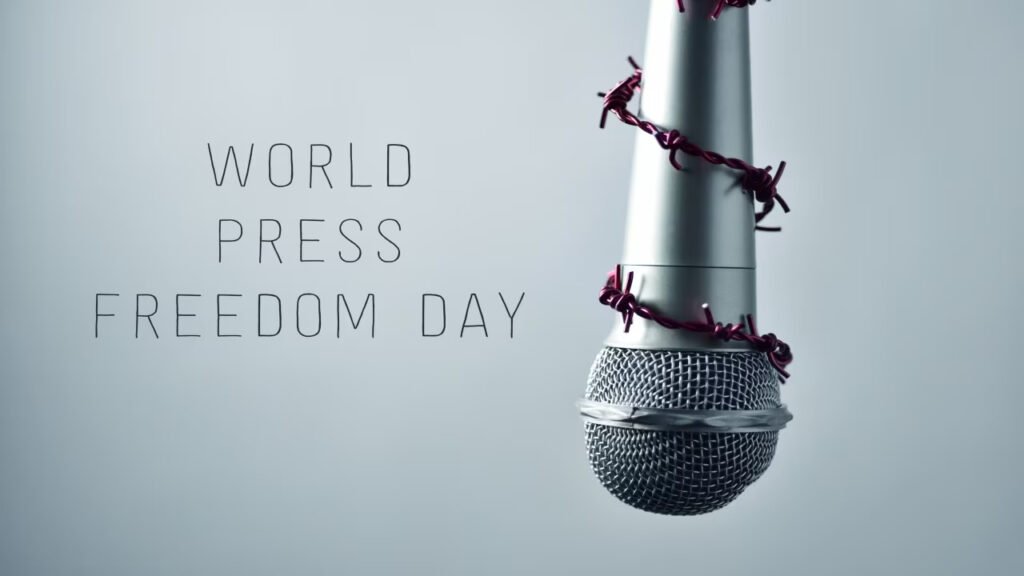World Press Freedom Day: Why It Still Matters in Today’s Digital World

World Press Freedom Day, Every year on May 3rd, the world stops—just for a moment—to tip its hat to something fundamental: freedom of the press. But this isn’t just some dusty holiday tucked away in a United Nations calendar. World Press Freedom Day is a loud, urgent reminder that without a free press, democracy starts to suffocate.
Since 1993, this global observance has been a platform to celebrate journalistic courage, spotlight threats to media freedom, and reaffirm the public’s right to information. Let’s dive into what makes this day so vital—because, frankly, it’s not just about journalists; it’s about all of us.
The Origin Story: Why May 3rd?
Ever wonder why World Press Freedom Day lands on May 3rd? It’s not random. That date marks the Windhoek Declaration, signed in 1991 by African journalists in Namibia. Their message was clear: a free, independent, and pluralistic press is essential for democracy and development.
The United Nations backed this vision in 1993, officially proclaiming the day. And from then on, every year brings a new theme, a fresh lens through which to examine press freedom’s evolving challenges and victories.
The Current Reality: Is the Press Really Free?
World Press Freedom Day, Let’s be honest—the idea of a truly free press is, in many places, still a dream. According to the World Press Freedom Index by Reporters Without Borders, the global media landscape is a mixed bag.
In some nations, journalists can speak freely, uncover corruption, and question authority without fear. In others? Reporters are jailed, silenced, or even killed for doing their jobs.
Countries like North Korea and Eritrea maintain iron-grip state control over information. But threats don’t just come from authoritarian regimes. Even in democracies, journalists face harassment, lawsuits, and political pressure.
Pandemic Pressure: COVID-19 and the Crackdown on the Press
Remember the early days of the pandemic? While we were all adjusting to lockdown life, many governments saw a golden opportunity—to tighten control over the media.
Under the guise of fighting “fake news,” some regimes ramped up censorship, shut down news outlets, or criminalized reporting on COVID-related issues. The result? Journalists became targets, and truth became a casualty of the crisis.
It’s a stark reminder: truth doesn’t just get lost in translation—it can get buried on purpose.
Journalists: The Unsung Heroes of Democracy
World Press Freedom Day, We often call journalists the “watchdogs of democracy”, and that’s no exaggeration. They dig deep, uncover lies, expose injustice, and amplify voices that would otherwise go unheard.
Without a free press, we lose a vital check on power. Journalists are our eyes and ears on the ground. They connect the dots, ask the hard questions, and shine a light in the darkest corners.
But here’s the catch—they can’t do that if they’re working in fear.
The Price of Truth: Risks Journalists Face Daily
You might think journalism is all headlines and press conferences, but in reality, it’s often dangerous, lonely, and thankless.
Journalists face:
- Intimidation and threats
- Arbitrary arrests
- Physical violence
- Online harassment
And it’s not just war correspondents or investigative reporters. Local journalists, covering corruption or police abuse in small towns, are often the most vulnerable.
When they’re silenced, we all lose access to the truth.
Advocacy Matters: Who’s Standing Up for Press Freedom?
Luckily, journalists aren’t alone in this fight. Several organizations work tirelessly to protect them:
- Committee to Protect Journalists (CPJ)
- Reporters Without Borders (RSF)
- International Federation of Journalists (IFJ)
These groups offer legal help, advocate for policy changes, and call out abuses. On World Press Freedom Day, they organize events, campaigns, and awards to remind the world that journalism is not a crime.

Global Efforts: Who’s Taking Press Freedom Seriously?
World Press Freedom Day, The United Nations keeps pushing for stronger protections, and some countries are finally listening. From passing new laws that protect whistleblowers to increasing transparency in government, there’s progress.
But here’s the rub—laws are only as good as their enforcement. In many places, protections exist on paper but vanish in practice. Without the political will to uphold them, journalists remain at risk.
The Digital Era: A Double-Edged Sword for Journalism
Technology has changed the game completely. On one hand, digital tools and social media have opened up new ways to share stories, reach global audiences, and expose injustice faster than ever.
On the other hand?
- Disinformation spreads like wildfire
- Troll armies attack journalists online
- Surveillance tech tracks their every move
Welcome to the age of cyber-censorship, where governments and private actors use algorithms and digital manipulation to distort the narrative.
If the internet was once a playground for free expression, it’s now also a battlefield.
The Public’s Role: What Can You Do?
World Press Freedom Day, Think press freedom is just a journalist’s problem? Think again. You have more power than you realize.
Here’s how you can help:
- Support independent media—especially local outlets.
- Pay for news instead of expecting everything for free.
- Call out misinformation when you see it.
- Defend journalists when they’re under attack.
Being a responsible news consumer is just as important as being a good reporter. It’s a two-way street, and we’re all in this together.
What’s Next? Press Freedom in the Years Ahead
Looking forward, the road won’t be easy. The threats are real—from AI-generated deepfakes to state-sponsored censorship campaigns.
But there’s hope.
Younger generations are stepping up, using social media to challenge narratives and demand accountability. Journalists are finding new ways to tell stories. Whistleblowers are bolder than ever.
If we nurture this momentum, press freedom can not only survive—it can thrive.
A Day Worth Remembering, A Fight Worth Fighting
World Press Freedom Day isn’t just about journalists—it’s about the public’s right to know. It’s about truth, transparency, and trust. It’s a reminder that when the press is muzzled, democracy suffocates.
So whether you’re a reader, a voter, or a keyboard warrior on Twitter, remember: your voice matters.
Support the press. Share the truth. Stand up for those who risk everything to bring it to you.
Read More: GTA VI Release Date Delayed to 2026: Rockstar Games Leaves Fans Frustrated
Conclusion
World Press Freedom Day, We’ve come a long way since the Windhoek Declaration, but the battle for a truly free press is far from over. From hostile regimes to digital disinformation, the challenges are evolving—but so is the resistance.
On this World Press Freedom Day, don’t just scroll past the headlines. Take a moment to think about what they cost—and why they matter.
Because in the end, a free press isn’t a luxury—it’s a lifeline.


